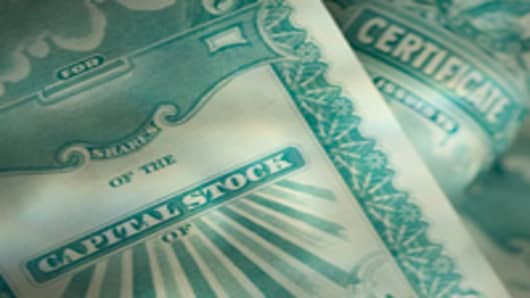Companies hoarding cash since the start of the recession are beginning to pass on some of it to their shareholders in the form of increased dividends, but it's unlikely to match the boom of a decade ago.
Moody's Investors Service estimates that US nonfinancial corporations were sitting on $1.84 trillion in cash in the first quarter of this year—a 27-percent increase from early 2007.
"At some point, owners and shareholders are going to want management to put that cash to work," says Matthew Bristow managing director of ClearRidge Capital in Tulsa.
CFO magazine recently surveyed companies within its CFO Midcap 1500—those with $100 million to $1 billion in annual sales—and found they are holding, on average, 15 percent more cash this year than the same period two years ago.
Make no mistake, there was good reason for companies to amass cash at the outset of this recession. They saw bad times coming, with limited short-term growth prospects, and they expected to burn through that cash.
Companies have begun to spread the wealth and are expected to continue to do so, by adopting or raising quarterly dividends, and in some cases, even paying a special, one-off, dividend.


